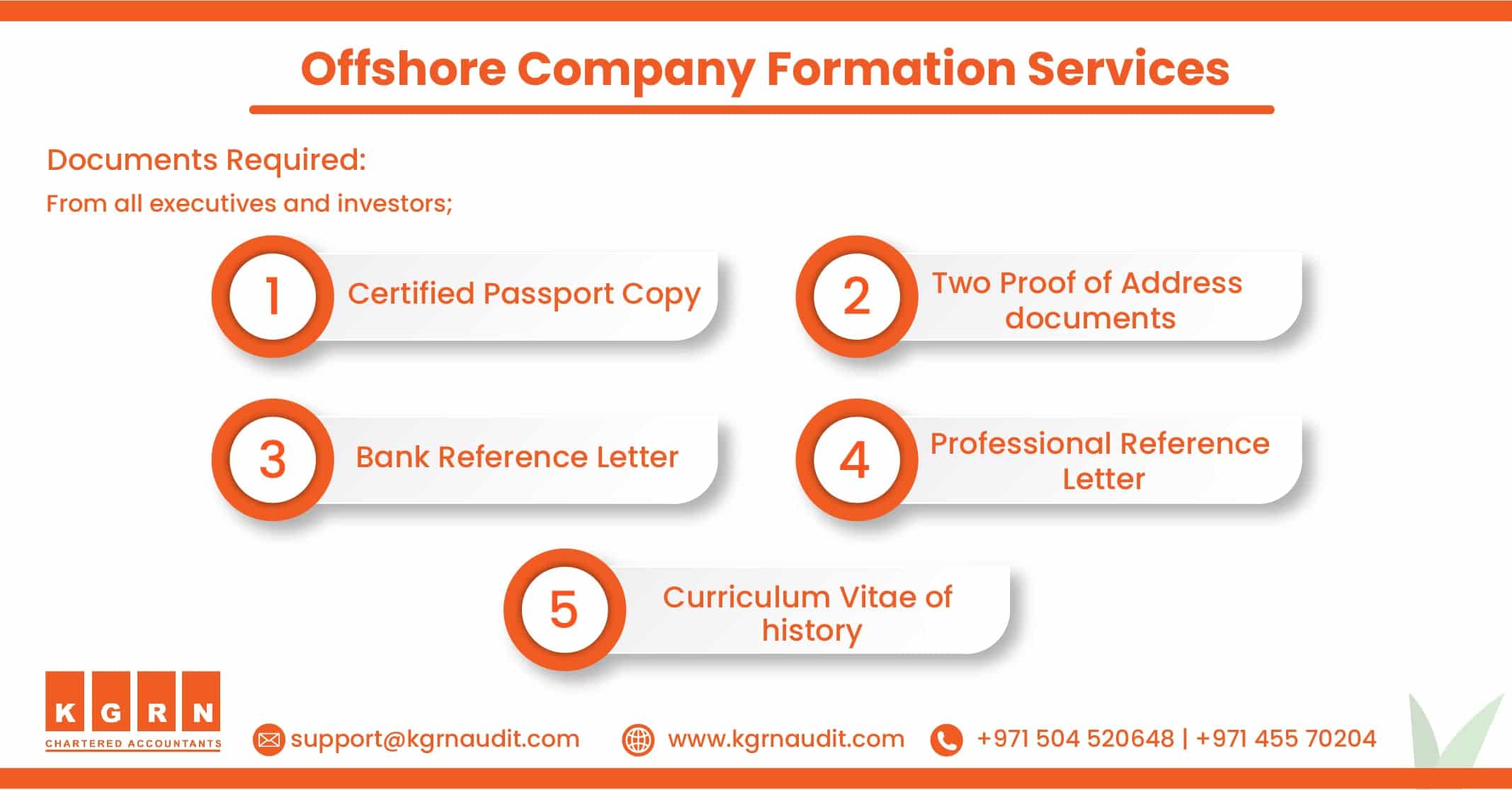Simplify Your Business Strategy with Offshore Company Formation
Simplify Your Business Strategy with Offshore Company Formation
Blog Article
Browsing the Globe of International Service: Insights on Offshore Company Formation
Offshore Company Formation offers a strategic avenue for global business operations. It supplies notable benefits, such as tax obligation optimization and improved privacy. Nonetheless, the procedure is not without its obstacles. Understanding the intricacies of regulative requirements and different territories is necessary. As services think about these alternatives, the actions entailed can significantly influence their lasting success. What are the crucial elements that can lead to effective offshore monitoring?
Recognizing Offshore Companies: Interpretation and Purpose
Offshore firms have ended up being a prime focus in global company conversations as a result of their distinct lawful and monetary frameworks. These entities are established in territories outside of the owner's country of residence, usually with beneficial regulative atmospheres. Generally, overseas companies serve various purposes, such as property protection, tax optimization, and improved privacy. They can operate in several fields including modern technology, trade, and money, offering flexibility for worldwide operations.The specifying characteristic of an offshore Company is its capacity to perform service internationally while taking advantage of reduced tax liabilities and regulative concerns. This framework appeals to investors and entrepreneurs looking for to expand their portfolios and handle risks effectively. Furthermore, many overseas territories use incentives to bring in foreign financial investment, bring about a boost in the Formation of these firms. Comprehending the meaning and function of offshore firms is crucial for steering with the intricacies of global business and capital flow.
Key Benefits of Offshore Company Formation
The Formation of an offshore Company supplies a number of compelling advantages that draw in business owners and capitalists alike. Among the key advantages is tax obligation optimization; lots of jurisdictions supply desirable tax obligation rates or exceptions, allowing organizations to make best use of earnings. In addition, offshore business usually delight in higher confidentiality, as lots of territories have stringent privacy legislations protecting the identities of Company owners and shareholders.Another significant advantage is property security. Offshore entities can guard assets from political instability and economic slumps in the proprietor's home country. Additionally, these companies can help with worldwide profession, providing simple access to international markets and simplifying cross-border transactions.The adaptability in business framework also attract local business owner, as offshore companies can be tailored to meet particular operational requirements. Generally, the strategic Formation of an offshore Company can cause improved financial safety, operational performance, and a durable worldwide presence.

Usual Difficulties in Establishing Offshore Entities
Establishing offshore entities presents numerous obstacles that organizations should browse. Key concerns include regulatory compliance, which can differ significantly across jurisdictions, and the impact of social distinctions on operations. In addition, companies need to take into consideration the risks and prices related to maintaining an offshore visibility, which can influence overall stability.
Governing Compliance Issues
Steering regulatory conformity issues poses substantial difficulties for businesses when they seek to establish overseas entities. Each jurisdiction has its own set of regulations and policies, which can vary widely and may be hard to navigate. Companies usually deal with difficulties relevant to tax conformity, anti-money laundering guidelines, and reporting demands. Additionally, modifications in international tax legislations can create unpredictability, making it essential for businesses to remain updated on compliance responsibilities. Failure to comply with these guidelines can result in severe fines, including fines and reputational damage. Engaging and recognizing the legal framework with local experts is necessary for effective overseas operations, ensuring that businesses can operate within the confines of the law while enhancing their worldwide approach.
Social Differences Impact

Expense Considerations and Threats
Guiding with the monetary landscape of offshore entity Formation provides numerous expense factors to consider and integral threats. Initial arrangement expenses often include lawful charges, enrollment expenses, and compliance costs, which can build up substantially. Furthermore, continuous maintenance expenses such as annual costs and accountancy services must be factored in. Moreover, fluctuating governing atmospheres in various territories present threats, potentially leading to legal difficulties or unanticipated prices. Businesses might additionally run into challenges connected to taxation, financial, and reputational worries, which can impact productivity and functional performance. Potential entrepreneurs must conduct thorough due persistance and financial forecasting to alleviate these dangers and guarantee sustainable growth. Understanding these price considerations is essential for successful offshore service endeavors.
Actions to Establish an Offshore Company
Establishing an offshore Company entails several important steps that call for mindful consideration. Key factors consist of making sure and picking the appropriate territory compliance with regional guidelines, together with collecting necessary documentation. Recognizing these elements is vital for a successful overseas organization setup.
Picking the Right Territory
Choosing the best jurisdiction is essential for any individual seeking to set up an overseas Company, as it can greatly affect business's lawful commitments, tax liabilities, and functional ease. Different factors ought to be thought about, consisting of the political security, regulatory setting, and tax incentives provided by prospective territories. Popular selections commonly consist of nations with beneficial tax obligation programs, such as the British Virgin Islands or Cayman Islands, due to their low or absolutely no tax obligation rates. In addition, the simplicity of operating and the online reputation of the jurisdiction can influence financier self-confidence and market accessibility. Ultimately, a well-informed decision based on comprehensive research study will certainly guarantee the overseas Company is placed for long-term success and compliance with worldwide standards.
Needed Paperwork and Compliance
When setting up an offshore Company, understanding the essential documentation and compliance demands is important to ensure a smooth procedure. Key documents commonly consist of a certification of consolidation, a memorandum and write-ups of association, and evidence of identification for directors and investors. Some jurisdictions may call for extra info, such as organization strategies or financial institution referrals. Compliance with neighborhood legislations is vital, which frequently entails selecting a registered representative and maintaining a licensed office. Routine reporting and adherence to tax obligation obligations need to also be taken into consideration. Failing to abide by these requirements can bring about charges or perhaps dissolution of the Company. Comprehensive prep work and assessment with lawful experts can assist browse these intricacies efficiently.
Selecting the Right Territory for Your Offshore Company
Exactly how can one identify the most appropriate jurisdiction for an overseas Company? Picking the best jurisdiction requires mindful factor to consider of several aspects. The lawful and tax setting plays an essential duty; jurisdictions with beneficial tax regimens may boost business profitability. Additionally, the political security and financial environment of an area can affect long-lasting organization viability.Another crucial aspect is the accessibility of monetary services and financial facilities, which help with smooth procedures. Potential local business owner ought to also consider the convenience of doing service, including the speed of enrollment and the clarity of regulations.Furthermore, language obstacles and cultural differences can affect procedures; therefore, aligning with a territory that straightens with service objectives and individual comfort is necessary. Ultimately, complete research study and specialist guidance can lead entrepreneurs in making an informed choice that lines up with their calculated purposes.
Compliance and Governing Factors To Consider

Best Practices for Handling an Offshore Business
Handling an overseas organization needs calculated preparation and precise execution to optimize efficiency and reduce dangers. Initially, developing a robust compliance structure is vital to browse differing laws across jurisdictions. Routine audits and threat evaluations help identify potential vulnerabilities.Moreover, leveraging regional knowledge with collaborations with regional professionals can boost operational efficiency and cultural understanding. Making use of innovation, such as cloud-based administration systems, streamlines communication and information administration, allowing much better decision-making. Furthermore, keeping transparent financial records and ensuring timely tax filings are crucial to support the Company's stability. Purchasing personnel training and development fosters an experienced labor force, advertising innovation and adaptability.Finally, developing clear performance metrics and essential efficiency indications (KPIs) helps examine service progress and notify calculated changes. By adhering to these read more best practices, business can effectively manage their overseas operations, making certain long-term success and sustainability in an affordable worldwide marketplace.
Regularly Asked Concerns
What Is the Cost of Creating an Offshore Company?
The cost of developing an overseas Company differs extensively depending on territory, lawful demands, and services needed. Generally, costs can range from a couple of hundred to numerous thousand dollars, consisting of enrollment, compliance, and annual costs.
For how long Does It Take to Establish an Offshore Entity?
The moment needed to establish an overseas entity varies substantially, commonly ranging from a few days to a number of weeks (offshore company formation). Elements influencing this duration consist of territory, called for paperwork, and the performance of the provider involved
Can People Type Offshore Companies Without a Service Partner?
People can without a doubt create offshore firms without a service companion. Several territories enable single-member entities, empowering business owners to establish and manage their businesses individually, while still profiting from potential tax advantages and legal protections.
Exist Any Tax Advantages for Foreign Investors?

What Sort Of Organizations Typically Make Use Of Offshore Firms?
Offshore firms are frequently made use of by different markets, consisting of ecommerce, technology, and finance. These entities often offer objectives such as asset security, tax obligation optimization, and privacy, interesting both international corporations and specific entrepreneurs. Offshore firms have actually come to be a focal point in international organization discussions due to their special lawful and economic structures. They can run in several markets including profession, financing, and technology, supplying adaptability for global operations.The specifying quality of an offshore Company is its capacity to carry out company internationally while profiting from decreased tax responsibilities and governing concerns. Furthermore, overseas business usually appreciate better discretion, as many territories have stringent personal privacy legislations safeguarding the identifications of Company owners and shareholders.Another considerable benefit is property protection. These business can facilitate international trade, supplying simple access to international markets and simplifying cross-border transactions.The flexibility in business structure additionally charms to company proprietors, as offshore companies can be customized to meet particular functional needs. Choosing the right jurisdiction is critical for any person looking to set up an offshore Company, as it can considerably affect the company's lawful commitments, tax obligation liabilities, and functional ease.
Report this page